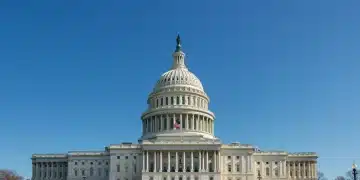International student visa revocations: what you should know
Anúncios
To avoid international student visa revocations, maintain full-time enrollment, comply with visa conditions, communicate with your school, and stay informed about immigration regulations.
International student visa revocations can be a concerning topic for many students abroad. Have you ever wondered what leads to these situations and how they can affect your educational goals? Let’s dive into this intricate matter.
Understanding the reasons for visa revocations
Understanding the reasons for visa revocations is essential for every international student. Various factors can lead to a sudden loss of student status, and knowing these can help prevent unwanted surprises.
Anúncios
One significant cause of revocation is noncompliance with visa conditions. It’s important to always follow the rules set by immigration authorities. Failing to maintain full-time enrollment or not making academic progress can jeopardize your status.
Common Reasons for Visa Revocations
Several issues can arise that may put your international student visa at risk. Here are some of the most common reasons:
Anúncios
- Dropping below the required course load
- Engaging in unauthorized work
- Criminal activities or legal issues
- Failure to provide accurate information
Additionally, changes in your personal situation, like a shift in your financial status or health issues, can impact your ability to uphold your visa requirements. It’s critical to stay informed and communicate with your educational institution and immigration office if anything changes.
Understanding Compliance
In short, staying compliant with your visa’s terms is crucial. Understanding the gravity of your responsibilities makes a big difference. Always consult your school’s international office for guidance if you’re unsure about any requirement.
If you suspect that your situation may lead to revocation, proactive measures can often help mitigate the consequences. Be sure to seek advice and act quickly. This knowledge empowers you to navigate your educational journey more smoothly and securely.
| Topic | Details | Recommendations |
|---|---|---|
| Common Reasons | Falling below course load, unauthorized work, legal issues | Stay enrolled full-time, follow all visa rules |
| Immediate Effects | Course withdrawal, forced return home, transfer schools | Consult advisors, plan transitions early |
| Long-Term Impact | Interrupted education, missed jobs, emotional stress | Use school support, stay mentally prepared |
| Action Steps | Contact school, gather documents, get legal help | Act fast, stay organized, seek legal advice |
| Appeal Process | File appeal, submit documents, explain clearly | Be concise, show compliance, follow up |
| Prevention Tips | Understand rules, communicate, monitor academics | Attend info sessions, ask questions, stay updated |
The impact of revocations on students’ education

The impact of visa revocations on students’ education is profound and can affect many aspects of a student’s life. Losing a visa can disrupt academic progress and create high levels of stress.
When a student faces a visa revocation, they may be forced to leave their country of study quickly. This sudden change can lead to unfinished programs or interrupted degrees. Many students invest significant time and resources into their education, so losing their visa feels like losing their dreams.
Immediate Consequences
Revocations can have immediate academic consequences, and students might need to:
- Withdraw from courses
- Transfer to another institution
- Return to their home country
These actions can impact not only academic achievements but also future career opportunities. It may take considerable time and effort to reapply for a visa and return to studies.
Long-Term Effects
Over time, the impact can grow. Many students find it difficult to adjust after being uprooted. They might miss out on job opportunities that require a degree. Furthermore, the break in studies could lead to being less competitive in the job market.
Returning to education after a visa revocation comes with additional challenges. Students may have to deal with emotional hurdles and a sense of displacement, which can hinder their academic performance.
It’s important for students to understand the support available to them. Educational institutions often have resources to help students navigate these challenges. Connecting with advisors and peers can be vital in overcoming these obstacles.
Steps to take if your visa is revoked
If you find yourself facing a visa revocation, it’s crucial to act quickly and decisively. Knowing the steps to take next can help you navigate this difficult situation.
First, stay calm and take a moment to assess your situation. Panic can lead to poor decisions. Remember, there are resources available to help you through this process. Your first step should be contacting your educational institution’s international office for advice.
Immediate Actions
Once you’ve reached out for support, consider the following actions:
- Gather all necessary documents, including your visa and any communication regarding revocation.
- Consult with an immigration attorney who specializes in student visas. Their expertise can be valuable.
- Look into filing an appeal if you believe the revocation was unjust.
- Stay informed about your status; check for any deadlines related to your visa.
In addition to these immediate actions, it’s helpful to keep communication open with your school. They may offer additional support, such as counseling services or legal assistance. This support can be crucial as you navigate through this challenging period.
Future Planning
Start planning your next steps. If you decide to appeal, ensure you gather any supporting evidence to strengthen your case. If your appeal is not successful, consider whether you want to transfer to another school or return to your home country.
Make sure to assess your options thoroughly. Maintaining your focus on your long-term educational goals can provide motivation during this tough time. Stay positive and proactive about your future.
How to appeal a visa revocation decision

If you find yourself needing to appeal a visa revocation decision, it’s important to understand the process clearly. This can help you present your case effectively and maximize your chances of success.
First, gather all relevant documentation. This includes your original visa papers, any communications from immigration officials, and any evidence that supports your case. Organizing your documents will help streamline your appeal process and ensure that you have everything at hand.
Steps to File an Appeal
Here are the key steps involved in appealing a visa revocation:
- Submit a written appeal to the appropriate immigration authority within the specified time frame.
- Clearly state the grounds for your appeal. Provide specific details as to why the revocation was unjust.
- Include supporting documents that align with your claims.
- Consider seeking assistance from an immigration lawyer who understands the nuances of visa appeals.
While preparing your appeal, keep in mind the importance of being clear and concise. Use direct language and emphasize crucial points that highlight your compliance with immigration laws.
What to Expect After Filing
After submitting your appeal, it can take time for a decision to be made. Be prepared for this waiting period, and do not hesitate to follow up with the immigration office if you do not hear back within a reasonable time.
It’s also essential to stay informed about your rights during the appeal process. Knowing what you can legally expect can empower you and help you remain proactive about your situation. Keep your educational institution updated about your appeal; they may offer you additional support or resources during this time.
Preventive measures to avoid visa issues
Taking preventive measures to avoid visa issues is crucial for every international student. Being proactive can help you maintain your status and focus on your education without unnecessary stress.
One of the first steps is to fully understand the conditions of your student visa. This includes knowing how many credits you should take per semester and any restrictions on work. Compliance with these rules keeps you on solid ground with immigration authorities.
Stay Engaged with Your School
Maintaining regular communication with your university’s international office is vital. They provide support and updates on visa regulations. Establishing a good relationship can help you quickly address any concerns that may arise.
- Attend workshops and informational sessions about visa regulations.
- Ask questions if you are unsure about your status or requirements.
- Regularly check official school emails for updates on immigration policies.
In addition to staying informed, keep thorough records of all your documents. This includes your visa, passport, I-20 or DS-2019 forms, and any correspondence with immigration. Having everything organized will be helpful in case of any queries or audits.
Monitoring Your Academic Standing
Your academic performance directly impacts your visa status. Ensuring that you are meeting your school’s requirements is essential. Keep a close watch on your grades and attendance. If you feel you might not meet the requirements, seek assistance promptly.
Planning vacations or travel is also something to consider carefully. Before you leave the country, check with immigration advisors to ensure that traveling will not affect your status. International travel can be tricky if your visa is close to expiring or if you have already had any issues.
In conclusion, understanding visa revocations is essential for international students
Being aware of the reasons leading to visa revocations can help you avoid pitfalls and stay on course with your education.
By taking proactive steps, such as staying informed about your visa conditions, maintaining good communication with your school, and monitoring your academic progress, you can greatly reduce the risk of issues arising.
If a revocation does occur, having a clear plan for appealing the decision and seeking support can make all the difference in your educational journey.
Ultimately, by prioritizing your visa status and following guidelines, you can fully embrace your international experience and achieve your academic goals.
FAQ – Frequently Asked Questions about International Student Visa Revocations
What are common reasons for visa revocations?
Common reasons include not maintaining full-time enrollment, engaging in unauthorized work, or not adhering to the terms of the visa.
What should I do if my visa is revoked?
First, stay calm and contact your school’s international office for guidance. Gather your documents and consult with an immigration lawyer if necessary.
Can I appeal a visa revocation decision?
Yes, you can file an appeal. Make sure to provide clear reasons and supporting documentation to strengthen your case.
How can I prevent visa issues while studying abroad?
Stay informed about your visa requirements, maintain good academic standing, and communicate regularly with your school’s international office.





